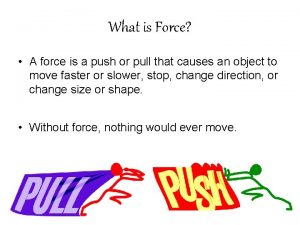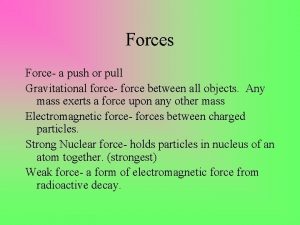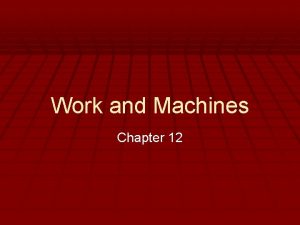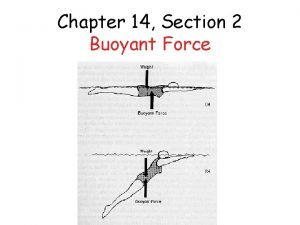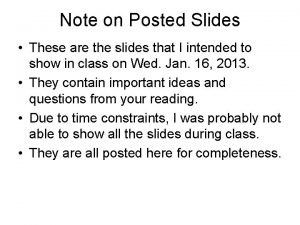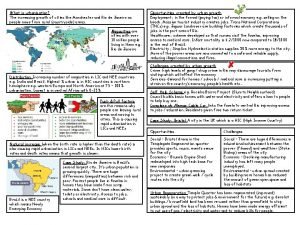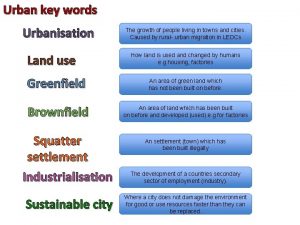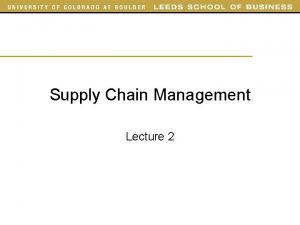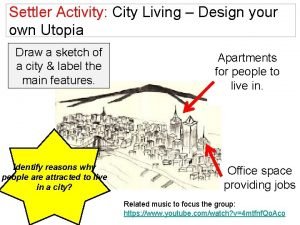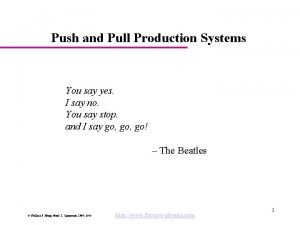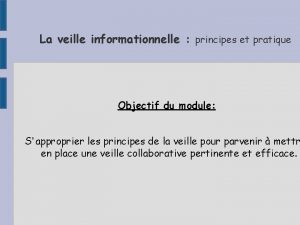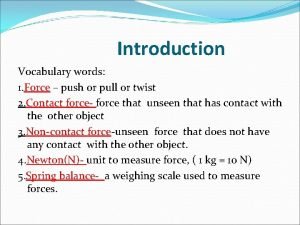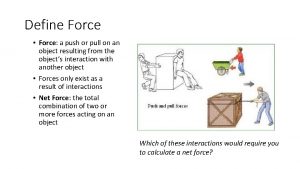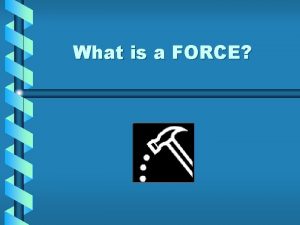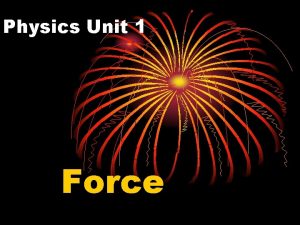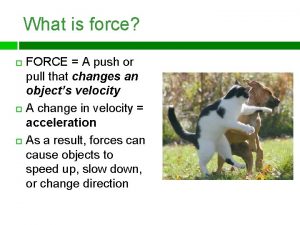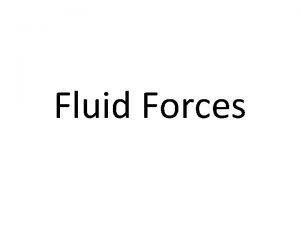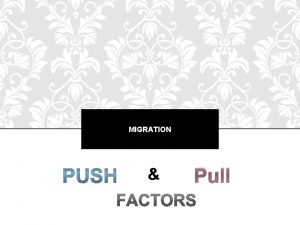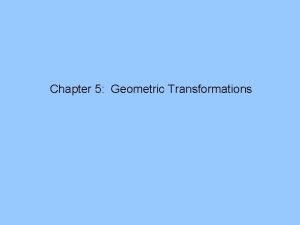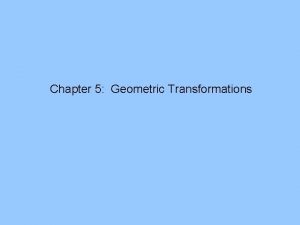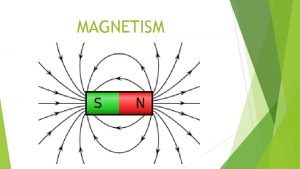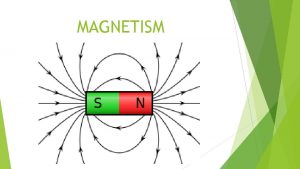WORK Force A push or pull You exert


























- Slides: 26

WORK

Force • A push or pull – You exert force on a pencil when you write • Forces are described by how strong they are and in what direction they are going

Unbalanced Forces • Unbalanced forces on an object will change the object’s motion – Start moving – Stop moving – Change direction

Unbalanced Forces


Balanced Forces and Motion • Forces exerted on an object do not always change the objects motion • Balanced forces – equal forces acting in opposite directions • If forces are equal but opposite, the object will not move

Balanced Forces and Motion

Work • When you exert a force on an object and it moves

Work • Work is only done if an object moves some distance – Holding something is not work even though it makes you tired No Work

Work • Work or no work? work no work

Force, Motion, and Direction • In order to work on an object, the force you exert must be in the same direction as the object’s motion

Force, Motion, and Direction No Work

Force, Motion, and Direction Some Work

Force, Motion, and Direction All Work

Calculating Work • The amount of work done depends on both the amount of force you exert and the distance the object moves • Work is measured in joules – A joule is the amount of work you do when you exert 1 Newton of force to move an object 1 meter Work = force x distance

Calculating Work • How much work is done if a 2 N of force is used to move a box 4 m? – Work = force X distance – Work = 2 N x 4 m 8 J

Calculating Work • A hydraulic lift exerts a force of 12, 000 N to lift a car 2 m. How much work is done on the car? – Work = force X distance 24, 000 J

Calculating Work • You exert a force of 0. 2 N to lift a pencil off the floor. How much work do you do if you lift it 1. 5 m? – Work = force X distance . 3 J

Work = 6 m x 2 N Work = 12 J Work = 3 m x 4 N Work = 12 J • Who is doing more work to move the barrel? They are doing the same amount • Who has to use more force to move the barrel? The man with the shorter ramp

Activity 1 Apply a quick push to the block of wood to make it move 100 cm. Diagram the situation. Make sure you show arrows for your force and the direction of motion of the object. pushing force object’s motion

Activity 2 Apply a force to the block to lift it 100 cm. Diagram the situation. Make sure you show arrows for your force and the direction of motion of the object.

Activity 3 Apply a constant force to the block to move it 100 cm. Diagram the situation. Make sure you show arrows for your force and the direction of motion of the object.

Activity 4 Hold a book at the same level for 15 seconds. Diagram the situation. Make sure you show arrows for your force and the direction of motion of the object.

Activity 5 Apply a constant downward force to the desk for 15 seconds. Diagram the situation. Make sure you show arrows for your force and the direction of motion of the object.

Activity 6 Apply a pull to the block to move it 100 cm. Diagram the situation. Make sure you show arrows for your force and the direction of motion of the object.

Ramp or No Ramp Materials block board spring scale meter stick Procedure 1. Attach the block with the eyelet to the spring scale. 2. Using the spring scale, lift the block into the air to a height of. 5 m (50 cm). Record how much force was used. Make sure you read the spring scale during the lift, not when you stop at. 5 m. 3. Build an inclined plane (ramp) with a height of. 5 m. Record the length of the inclined plane. 4. Attach the spring scale to the block with the eyelet and pull it up the ramp. 5. Record the amount of force it took to move the shoe.
 Magnetic force push or pull
Magnetic force push or pull Gravitational force push or pull
Gravitational force push or pull Section 1 work and machines answer key
Section 1 work and machines answer key What is the upward force that fluids exert on all matter
What is the upward force that fluids exert on all matter A boxer cannot exert much force
A boxer cannot exert much force Rotary component of muscle force
Rotary component of muscle force Push and pull factors of urbanisation
Push and pull factors of urbanisation Push and pull factors of urbanisation
Push and pull factors of urbanisation Centripetal movement geography
Centripetal movement geography Urban key house
Urban key house Supply chain internships
Supply chain internships Strategia push i pull
Strategia push i pull Your
Your Push and pull scenarios
Push and pull scenarios Pull factor definition
Pull factor definition Conwip
Conwip Carefully blended mix of promotion tools
Carefully blended mix of promotion tools Marketing objectives examples
Marketing objectives examples Push pull profile strategies marketing communications
Push pull profile strategies marketing communications Market pull example
Market pull example Push and pull factors of urbanisation
Push and pull factors of urbanisation Kanban push pull
Kanban push pull Méthode pull et push veille
Méthode pull et push veille Oros push pull
Oros push pull Veille pull
Veille pull Jit push or pull
Jit push or pull Force venn diagram of pushes and pulls
Force venn diagram of pushes and pulls
